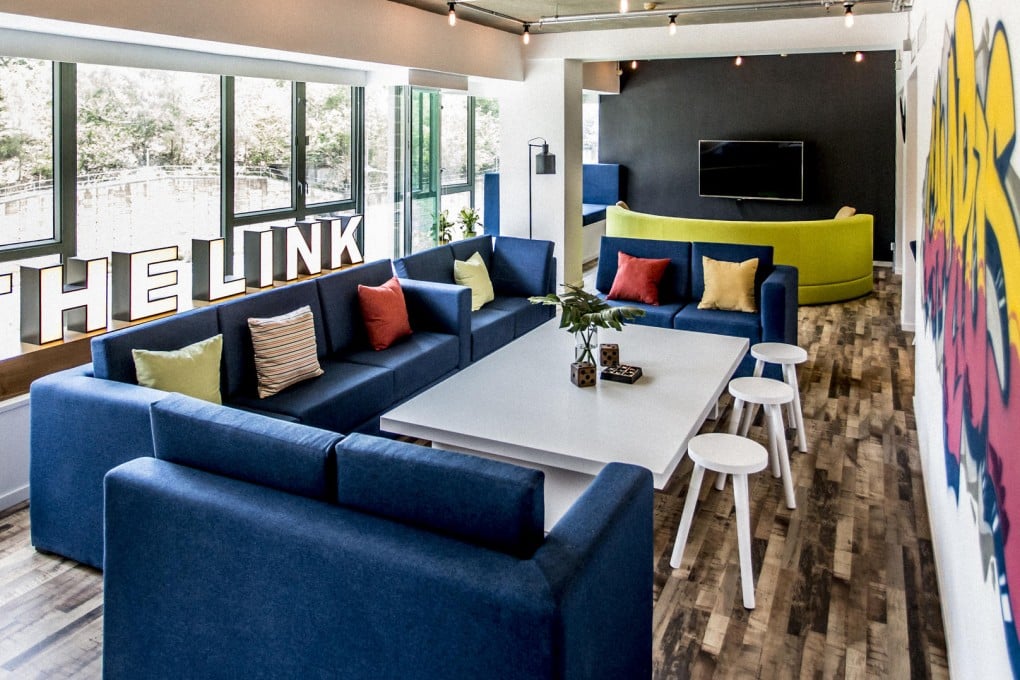Hong Kong's designer dorms: private sector offers students budget luxe from HK$4,000 per month
City's student housing gets a stylish update with private and shared rooms, great views and a host of facilities

Student residences might bring a few things to mind: breeze block walls, spartan furniture, late-night partying. Sea views and cutting-edge design probably aren't among them. But that is exactly what is offered by Campus Hong Kong, the latest and most luxurious of a growing number of private dormitories aimed at Hong Kong's booming student population.
"We foresaw a big market here," says Marc Bichet, a vice-president of GCP Hospitality, the company that owns Campus. "We're getting so many students from [China] and abroad."
Campus is not alone: in recent years, a number of companies have opened hostels and student-oriented apartment buildings in response to a shortage of beds in university-run residence halls.
Hong Kong is a little bit behind in terms of its offerings ... [accommodation is] small and budget - a dormitory where you pay for your bed and that's it - or it's nicely designed but the community factor is missing
"There is indeed an increase in private student residences in the market," says Karen Cheng, a spokeswoman for the City University of Hong Kong, which maintains a list of recommended off-campus housing for students.
Among them are old standbys such as the YWCA, but also newcomers such as Y-Loft in Chai Wan and Yesinspace in Tai Kok Tsui, both of which offer hotel-like rooms for about HK$9,500 a month.
Campus has taken a different approach, offering 48 rooms with four beds, a kitchen and an en-suite bathroom. The rooms occupy three floors of the Bay Bridge Hotel in Tsuen Wan, each overlooking the bridges and ships criss-crossing Rambler Channel. Students have access to hotel facilities such as a fitness room and swimming pool, along with a lounge called The Link. Rates run from HK$4,000 per month for a bed to HK$15,000 for an entire 660 sq ft, four-bed room.
"Hong Kong is a little bit behind in terms of its offerings," says Bichet. "When I say behind, it's mainly the product itself, being modern and creating a hub and a community for students. What we've seen is that there's quite a lot of student accommodations in Hong Kong, actually, but either it's small and budget - a dormitory where you pay for your bed and that's it - or it's nicely designed but the community factor is missing."
